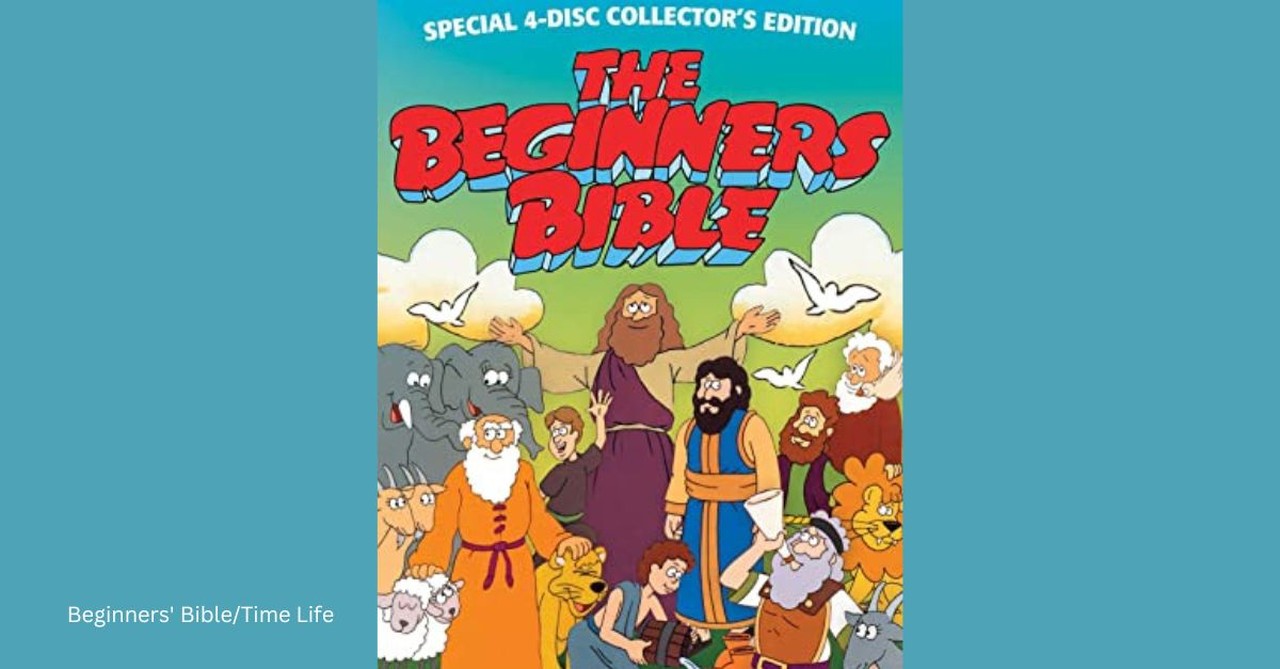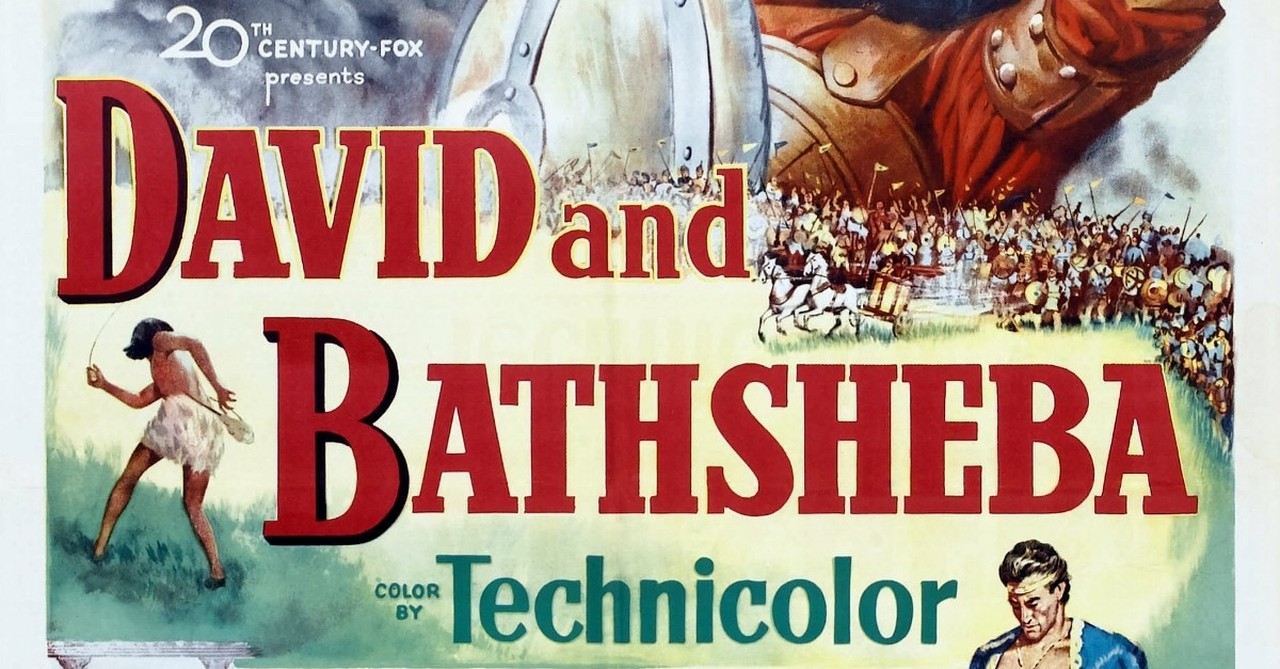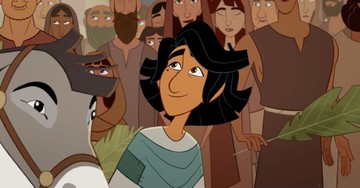10 Great King David Movies You Should See

Some of us remember him as the young man who slew a giant with a sling. Some remember him as the man who spent years running from his father-in-law, the jealous King Saul. Others remember him as the man who wrote most of the poems collected in the book of Psalms. One way or another, King David is one of the best-known people mentioned in the Bible.
Given his fame, it’s not surprising that his story has been adapted into movies of all kinds. There are currently plans for a new animated movie about David, which promises to have “the moving authenticity of Prince of Egypt paired with the modern animation and musical fun of Moana or Tangled.”
As we wait to see how that film turns out, let’s look at some of the best King David movies of past years. Each entry included here has a link to the best place to find the movie and a suggestion about whether the movie is appropriate for kids. “Yes” means it’s good for kids (little ones as well as teenagers), “No” means it’s at least PG-13, and “Maybe” means it’s at the borderline. Where possible, links have been included to websites that give parental guides (or where you can add one after seeing the movie yourself).
Further Reading: What Is the Davidic Covenant?
Photo Credit: ©GettyImages/Tomertu
1. The Beginner’s Bible: David and Goliath (1995)

1. The Beginner’s Bible: David and Goliath (1995)
SLIDE 1 OF 10
Recommended for Kids: Yes
As of this writing, The Beginner’s Bible has two cartoon series. The first is a series of 30-minute cartoons released in the 1990s, which they have made free to watch on YouTube and can also be easily found on DVD. These episodes have fun storylines, and their retro animation looks a bit like The Simpsons—old-fashioned, but in a fun way rather than in a dated way. There is also a more recent series, which is basically a motion comic—book illustrations animated slightly so they move, the narration and dialogue taken directly from the books. The second series can easily be found on Amazon.
While either option is great for kids, the 1990s cartoon provides more of a story. It starts with Samuel anointing David and tells the story of him defeating Goliath with slight embellishments (a song and dance scene about how David learned to trust God defending his flocks from lions). The cartoon ends shortly after David kills Goliath, skipping forward to show how David became a king who trusted God. As cartoons about King David go, it’s fun, doesn’t color outside the lines much, and is accessible for kids of any age.
Further Reading: Who Was Goliath in the Bible?
Photo Credit: Beginners Bible/Time Life
2. Absalom (1912)

2. Absalom (1912)
SLIDE 2 OF 10
Recommended for Kids: Maybe
Bible stories were adapted to film almost from the industry’s start. The silent movie Absalom is under 20 minutes, efficiently covering the story of David’s rebellious son. Yes, it’s an older movie, and some elements haven’t aged well. However, if you’re a film buff, there are several good reasons to watch this movie. First, It shows how the genre has changed. It’s more than a single Bible scene (which is what some of the earliest silent films did), but it’s not quite a feature-length movie (like the original The Ten Commandments). You can also watch it alongside David and Goliath, made by the same director a year earlier, to see how much clunkier it could have been.
Second, it highlights a side of David’s story often overlooked in Sunday School classes. Absalom was one of David’s oldest sons, and the Bible communicates that David dearly loved him. Betrayals and other struggles (which this movie glosses over a little bit) created a cycle of violence that ended with Absalom trying to take his father’s throne. It’s not a nice story. However, it’s an important story about sin’s consequences.
Further Reading: Who Was Absalom in the Bible?
Photo Credit: Pathé Frères/Harpodeon
3. Dave and the Giant Pickle (1996)

3. Dave and the Giant Pickle (1996)
SLIDE 3 OF 10
The fifth of the original VeggieTales videos, this short movie gives a sillier view of the David and Goliath story. There are catchy songs and dances and amusing jokes (David’s father stuttering as he announces the Philistines are attacking, leaving his brothers confused—“What? The lima beans are lacking?” “No, the Philistines are attacking!”). There are more than a few pop culture references that teenagers or adults will enjoy, like jokes referring to other Bible stories (David starts doing a song and dance, and Saul groans, “you’re not going to sing, are you? Couldn’t you just play your harp and I’ll throw things at you?”).
The cartoon depicts David as the smallest and youngest of his brothers, a trope that some Bible scholars debate. Jessie called David his “my last son,” which may imply value (i.e., Jessie didn’t think David would amount to anything) more than age or stature. Since David was Saul’s armor bearer before he fought Goliath (1 Samuel 16:21), he was likely close to 20 years old when he killed Goliath. However, this VeggieTales episode makes it clear that David trusted God while others didn’t, which is the story’s big lesson, no matter how short or young David was.
Further Reading: What Are God’s Promises to David?
Photo Credit: Big Idea Entertainment/PureFlix
4. Testament: David and Saul (1996)

4. Testament: David and Saul (1996)
SLIDE 4 OF 10
Testament: The Bible in Animation isn’t the easiest cartoon series to find, but it’s well worth searching out on streaming or DVD. Made in the 1990s with many animators, its episodes sometimes used stop-motion, sometimes traditional animation, but always looked crafted and better than average. The same studio went on to make the excellent Jesus movie The Miracle Maker.
David and Saul is one of the few King David movies that opens with Saul getting David to play the harp for him. Consequently, Saul comes across as paranoid from the start, which makes his jealousy of David more understandable. It’s also one of the few King David movies to show Saul consulting the witch of Endor and highlights how the story implies the witchcraft didn’t work. The witch was shocked when Samuel showed up (1 Samuel 28:12-14), suggesting God sent Samuel rather than the witch conjuring a familiar spirit that pretended to be Samuel. By giving this scary story context, David and Saul helps viewers understand one of the Bible’s stranger stories. By beginning and ending with Saul (from his mania to his battlefield death), this King David movie highlights the sad shape of Saul’s story as he slowly brings about his own death.
Further Reading: Who Was the Witch of Endor?
Photo Credit: Christmas Films/S4C/BBC Wales
5. David and Bathsheba (1951)

5. David and Bathsheba (1951)
SLIDE 5 OF 10
Discussions about 1950s biblical epics sometimes describe this film as an interesting exception to the formula. It’s got a couple of action scenes and some great costumes, but it focuses its attention on the characters. Film critic Andre Bazin suggested the movie turns David and Bathsheba’s relationship into a doomed romance, like something from the Brontes’ novels. Unlike some other biblical epics (Esther and the King), it doesn’t create its romance by playing fast and loose with the Bible story. Yes, this movie invents ulterior motives for Bathsheba (did she know David could see her?) and adds details from other Bible stories, but it doesn’t have blatantly fictional scenes until the third act. In that third act, David asks God’s forgiveness and dares to touch the ark. David then has several flashbacks, which may be God reminding him of his past, and leaves the tabernacle alive, knowing God has forgiven him. The scene’s an interesting experiment in showing a character having a transcendental experience—something several religious filmmakers were experimenting with in movies like Diary of a Country Priest.
Beyond elements that will interest film buffs, this movie is worth seeing for its clear vision. Even when it fictionalizes David’s story, its changes highlight the Bible story’s themes about sin’s consequences. The movie balances showing David as a proud man who mistakenly thinks he can escape his mistakes and a God-fearing man who wants to repent and please God.
Further Reading: Did David Rape Bathsheba?
Photo Credit: Twentieth-Century Fox
6. King George and the Ducky (2000)

6. King George and the Ducky (2000)
SLIDE 6 OF 10
Another VeggieTales project, this time focusing on the David and Bathsheba incident. Since VeggieTales always had a kid-friendly attitude, the story chooses to adapt the story pretty loosely. In a fantasy kingdom, King George is more interested in his hobby, collecting rubber ducks, than in managing his kingdom. When he sees a young man playing with a rubber duck, George becomes obsessed with getting it for himself (despite his butler reminding him that he already has a closet full of rubber ducks).
Yes, it’s a very loose adaptation of the Bible story. However, it translates the main events (a king seeing something he shouldn’t have, setting up someone to suffer so he gets what he wants, and a wise man bringing conviction afterward) without changing so much that the lesson gets lost. The story of David and Bathsheba has one lesson for audiences of any age: selfishness only causes more pain.
Further Reading: Who Was Bathsheba in the Bible?
Photo Credit: Big Idea Entertainment/PureFlix
7. A Story of David (1961)

7. A Story of David (1961)
SLIDE 7 OF 10
An early TV movie and one of the first Bible movies filmed in Israel, A Story of David breaks the formula to make something truly interesting. As the title states, this is a story of David, not the complete story. It begins with David being cheered by Jerusalem’s citizens for “slaying his tens of thousands” and shows Jonathon telling a paranoid Saul that he can’t kill David. The story follows about half the events of David’s exile—nearly getting killed by Saul, living in the wilderness, meeting Nabal and Abigal, and David taking Saul’s spear from his tent without killing him. The movie ends with David still on the run but with his new wife Abigail and various followers (including a young priest’s son named Abiathar).
Ending the movie before Saul’s death may feel strange, but the movie has a clear emotional journey. Saul begins the movie paranoid and ends the movie humble. The conflict between forgiveness and revenge runs—David contemplates what to do about Saul, while young Abiathar craves revenge on Saul’s men for killing his family. Making Abiathar young enough to seem like David’s son allows for some great scenes of David counseling Abiathar about his rage. The actor playing David (Jeff Chandler) is older than many actors who play David, but he’s easily one of the most convincing Davids. He seems simultaneously a great warrior and a devout man who would rather worship God than fight men.
Its age shows occasionally, but decades later, it’s still one of the best-written King David movies ever made.
Further Reading: Who Was Saul in the Bible?
Photo Credit: fan poster by G. Connor Salter. Background by Tom Mossholder/Unsplash
8. Saul and David (1964)

8. Saul and David (1964)
SLIDE 8 OF 10
Aside from the fact it skips the witch of Endor and David pretending to be insane among the Philistines, this is a very close adaptation of the Saul and David story. Given this was made in Italy when Italian sword and sandal epics were taking huge license with Bible stories (sometimes sticking Bible characters in nonsensical plots, as in Goliath and the Vampires), it’s surprising how straight it tells the story.
The movie begins with Samuel rebuking Saul for disobeying God and ends with Saul’s death on the battlefield. Saul starts confident but becomes paranoid, even manic, as he realizes a young lad he hired to play the harp will be his successor. The actor playing Saul (Norman Wooland) goes for over-the-top, making Saul seem like a manic depressive. While this performance may seem cheesy today, it’s an interesting interpretation. Was Saul’s erratic behavior purely due to an evil spirit (1 Samuel 16:14-23), or was there something biochemical going on as well?
As in many older Bible movies, David is portrayed as a child when he kills Goliath, and he seems a little too nice in those early scenes. Once the movie switches to showing David as an adult, he becomes more human and more plausible. He is clearly a powerful warrior, but treats his success as God-given, meaning he has nothing to prove. Consequently, his grief at Saul’s death seems genuine.
A fast-moving and still-exciting movie about the tragic relationship between Saul and David.
Further Reading: 4 Lessons from the Rise and Fall of King Saul
Photo Credit: fan poster by G. Connor Salter
9. The Bible: Kingdom (2013)

9. The Bible: Kingdom (2013)
SLIDE 9 OF 10
The fourth episode in the Bible miniseries covers the highlights of David’s life in under 50 minutes. Like the rest of this TV series, it feels more like a “best of” compilation than a story, but everything is well-assembled. Plenty of action scenes, relatable characters, and hints of comedy balance out the suspense. The time constraints mean that only David and Saul come across as well-rounded characters, but the actors do their work well enough that no one seems like walk-on roles.
Perhaps most interesting, the story highlights an important fact that most King David movies miss: Uriah the Hittite is mentioned before the Bathsheba story as one of David’s mighty men (1 Chronicles 11) (2 Samuel 23). “Kingdom” uses this fact to imagine Uriah as one of David’s early followers, a friend who has followed him faithfully since David was hiding from Saul. Consequently, when David arranges to have Uriah killed, it feels heartbreaking. Viewers realize he was sending someone he knew, possibly knew well, to his death.
Further Reading: 5 Surprising Lessons from Uriah in the Bible
Photo Credit: LightWorkers Media
10. The Bible Collection: David (1997)

10. The Bible Collection: David (1997)
SLIDE 10 OF 10
The Bible Collection, a series of 90-minute TV movies made by Lux Vide in the 1990s, had a great approach to adapting Bible stories. Their movies stuck fairly close to the Bible story and had solid production values and talented casts. Their movie about David, told over two 90-minute episodes, can easily be watched in one sitting or over several days.
The cast is especially good here—Jonathan Pryce plays King Saul and Leonard Nimoy plays Samuel, each making their characters relatable even at their sternest moments. Bathsheba is the only one of David’s wives who becomes a character, but Sheryl Lynn Lee captures her complexities. Most King David movies make Bathsheba a tease or a nonentity. Here, she’s a woman who may not love her husband but wasn’t trying to tempt anyone on the roof. She may find David attractive but is frightened by this no-win situation: frightened of betraying her husband, frightened of what a powerful man like David will do if she says “no.” Her story may end with her son ruling Israel, but it’s not a fairytale romance.
The movie balances making David relatable and flawed, never excusing his mistakes. There’s no attempt to shift David’s blame for killing Uriah or letting his son Amnon off easy for assaulting David’s daughter Tamar. David comes across as a man yearning to serve God who fears making Saul’s mistakes and losing his family’s respect. He sacrifices much to serve God, mourns his sins, and tries to leave something better for his family. There are more action-oriented movies about David, but few capture his many facets this well.
Further Reading: Why Was David Allowed to Take so Many Wives (and Who Were They)?
Photo Credit: Lux Vide-Beta Film/Lube/Quinta/Turner Pictures
If you enjoyed this article, you may enjoy the following:
10 Great Easter Movies about the Life of Jesus
5 Inspiring Esther Movies You Should See
Top 10 Bible Movies of All Time
10 Classic Joseph Movies You Should See

Originally published December 12, 2022.






